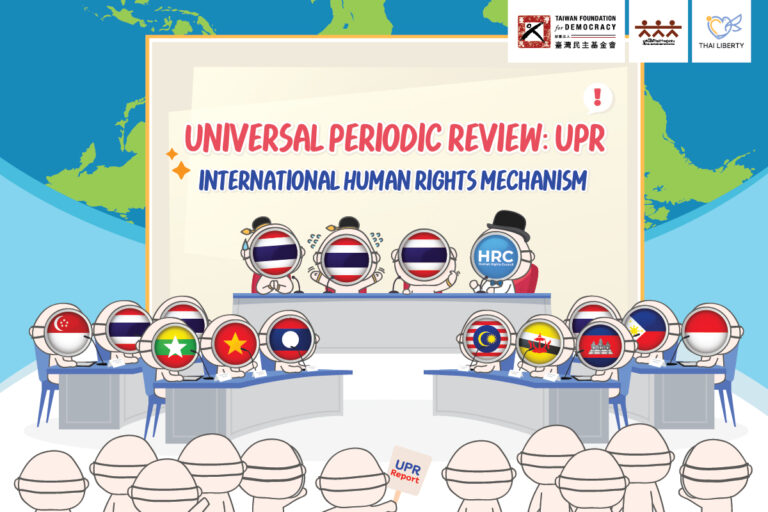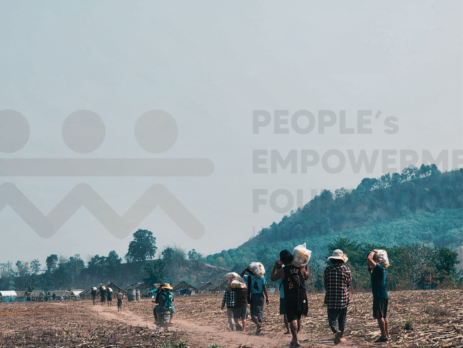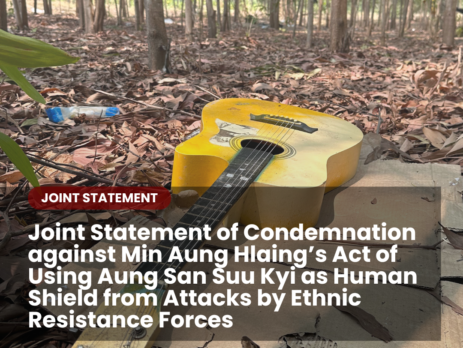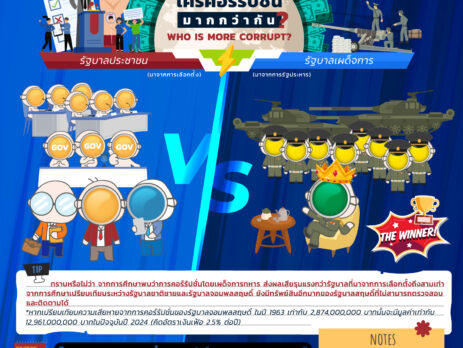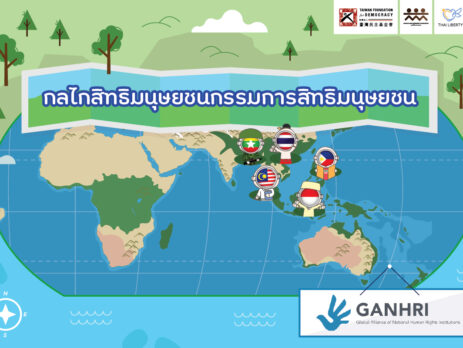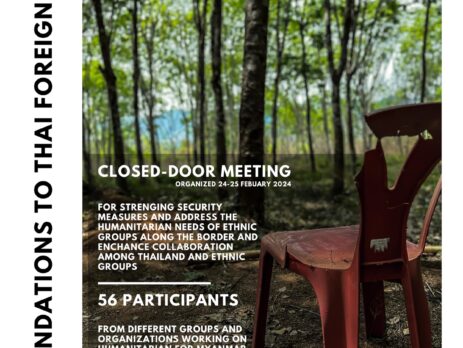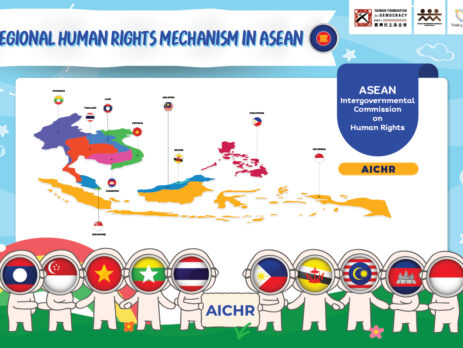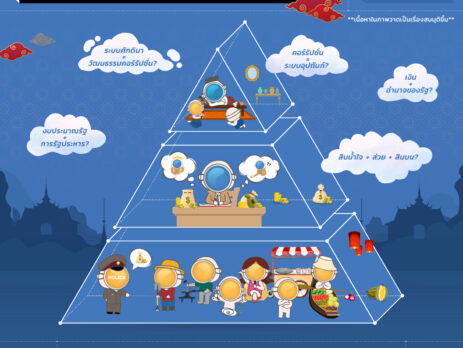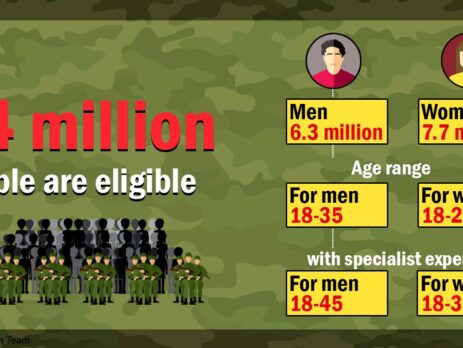Every four to five years, governments around the world are required to associate with a human rights review process at the United Nation Human Rights Council. To enter the UPR process, which is one of the important mechanisms for monitoring and investigating human rights situations.
What is the origin of the UPR mechanism? How does it work? How do ordinary people come to participate? The People’s Empowerment Foundation (PEF) invites everyone to come and learn together through the human rights cartoon series 1 “UPR Human Rights Monitoring Mechanism”.

The human rights mechanism UPR (Universal Periodic Review) is the mechanism to “monitor and investigate” the human rights situation among all 193 UN member governments. Every government must be a joint monitor and be inspected every four and a half years from UN Member States (peer to peer). UPR will be held at the National Human Rights Council in Geneva, Switzerland. The UPR mechanism is designed under the principle of “universality”, “impartiality”, “objectivity”, “non-selectiveness (non-discrimination)” and “cooperation” with the aims of working creatively on human rights issues. It is not intended to attack and denounce any governments. Furthermore, it must have reliable information and doesn’t take too long time.

How is UPR established?
After the emergence of the Declaration of Human Rights in 1945, the United Nations appointed the United Nations Commission on Human Rights. Its duty was to give suggestions to Economic and Social Council (ECOSOC). Hereafter 60 years, Human Rights Committees unenabled to solve human rights problems. Moreover, many times, the violators are the government.Later on, UN Secretary-General Kofi Anand issued a statement, “In Larger Freedom,” criticizing the UN’s system for its ineffectiveness and proposing the creation of the United Nation Human Rights Council. and changing the structure of the United Nations Eventually, the establishment of United Nation Human Rights Council was approved through United Nations General Assembly Resolution 60/251 on 15 March 2006. The emergence of the Human Rights Council led to the establishment of the UPR mechanism under the United Nation Human Rights Council. Thailand just passed third cycle of UPR review on November 10, 2021.

The process of UPR reviewing could be divided into 3 important phases:
1. “Before” UPR review period
This is the report submission period when every human rights report from any organizations or individual which has an opinion on the human rights situation will be published to Office of the United Nations High Commissioner for Human Rights (OHCHR). All submitted reports will be uploaded to the OHCHR website. Everyone can read before the actual UPR review day.
2. UPR review period
States under human rights review must go to Geneva to receive human rights recommendations from other UN member states. It is necessary that the state under review to give a response to all recommendations, whether to accept or not accept.
3. Implementation
The state under review have to implement those accepted recommendations within the country such as issuing policies, enacting laws to protect rights of people. The UN organizations and civil societies including individuals can take crucial roles to monitor an implementation of states. After around 4.5 years, a state must come back for the next cycle of UPR to be reviewed on human rights situation again.
Who can submit UPR report? How many groups can it be divided into?
Submission of reports can be divided into three forms of reports.
1. State or Government reports
All governments are required to submit state UPR reports to OHCHR.
2. United Nations report
Diverse UN agencies can submit UPR reports.
3. Civil Society reports
All civil society organizations can directly submit UPR reports. So that many state members can come and read the civil society reports and state members can raise a recommendation from civil society reports during UPR review.

The UPR Cycle and Session.
Every UPR cycle takes approximately 4 and a half years to review the human rights situation in every country around the world.
In 1 cycle, the review cycle will be divided into segmentation called “Sessions”, approximately 12-13 sessions per 1 Cycle.
In 1 session, approximately 14-16 state countries will be under reviewed.
The chairman of working groups will be changed every session.
***Currently, the UPR is in Cycle 4. Thailand will enter the review process in session 53 in October-November 2026
During the UPR process, the state under review can respond in three ways.
1. Accept is committing to accept recommendations to implement in the country.
2. Note to clarify and acknowledge the recommendations. (neither reject nor accept)
3. Reject is expressing the state does not commit the recommendations.

This image attempts to show an overview of what happened among ASEAN governments during UPR 1st Cycle and the depiction could demonstrate that how ASEAN governments responded to the recommendations, both accepted or rejected.

The depiction of the outcome of the ASEAN governments’ performance during Cycle 2. During this period, many governments intended to avoid using the word “reject” replacing by using the word “note”.

This picture is the depiction of the results of the ASEAN government’s response toward recommendations during UPR Cycle 3. Due to Myanmar was reviewed under UPR process before the coup day (1 February 2021), that was why there were no recommendations regarding Myanmar’s coup in the UPR stage.

On this page, our team has tried to collect the recommendations that ASEAN countries announced “do not accept (note)” in the UPR process in Cycle 3. From this information, it could implicitly illustrate the notion of ASEAN state’s thoughts on resisting and rejecting the idea of human rights in some issues. However, if looking at the overall picture, ASEAN governments have tendency to be more authoritarian regime in term of ideas and approaches.

The UPR is the human rights monitoring mechanism at the United Nations level. It has the characteristic that the government has the right to monitor and investigate other UN member states (peer to peer review). However, a civil society and the general public can participate by submitting UPR reports regarding the situation of human rights to the UN.
Although the UN member states are essential in the UPR process, the People’s Empowerment Foundation (PEF) would like to invite all people in both Thailand and ASEAN to be part of this mechanism by submitting a UPR report. So that everyone can be a part of the mechanism to jointly develop human rights.
If anyone has more question or want to organize training about human rights at anywhere.
Please contact the People’s Empowerment Foundation (PDF) via social media message platform.

